
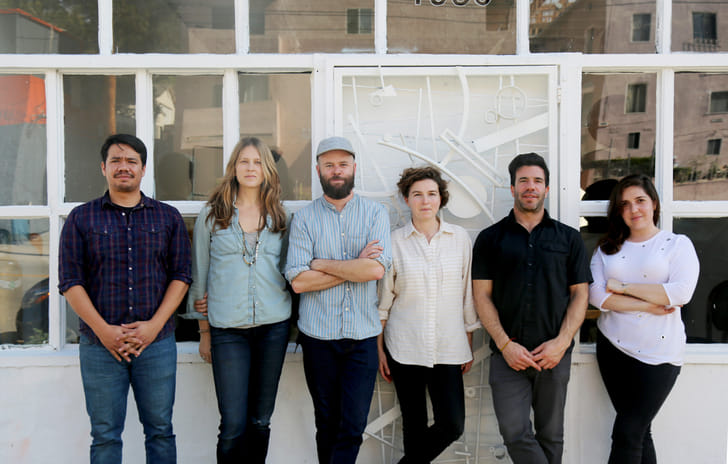
For this week's Small Studio Snapshot, we're heading outdoors to talk with David Godshall, a self-proclaimed punk and art-historian-turned-landscape-architect.
Godshall, alongside with Alain Peauroi, founded TERREMOTO, a landscape architecture firm with offices in Los Angeles and San Francisco specializing in localized landscapes that are both formally and conceptually adventurous.
How many people are in your practice?
There are now seven of us. I (David Godshall) am co-owner / principal with Alain Peauroi, my friend and business partner, and our amazing team, in order of appearance, is Diego Lopez, Jenny Jones, Nadia Alquaddoomi, Story Wiggins and Erik Schmahl. I live in Los Angeles and we have an office in Echo Park (Diego, Jenny, Erik). Alain lives in the outer Mission in San Francisco and runs the Bay Area office, with Nadia and Story. So we do projects in both places.
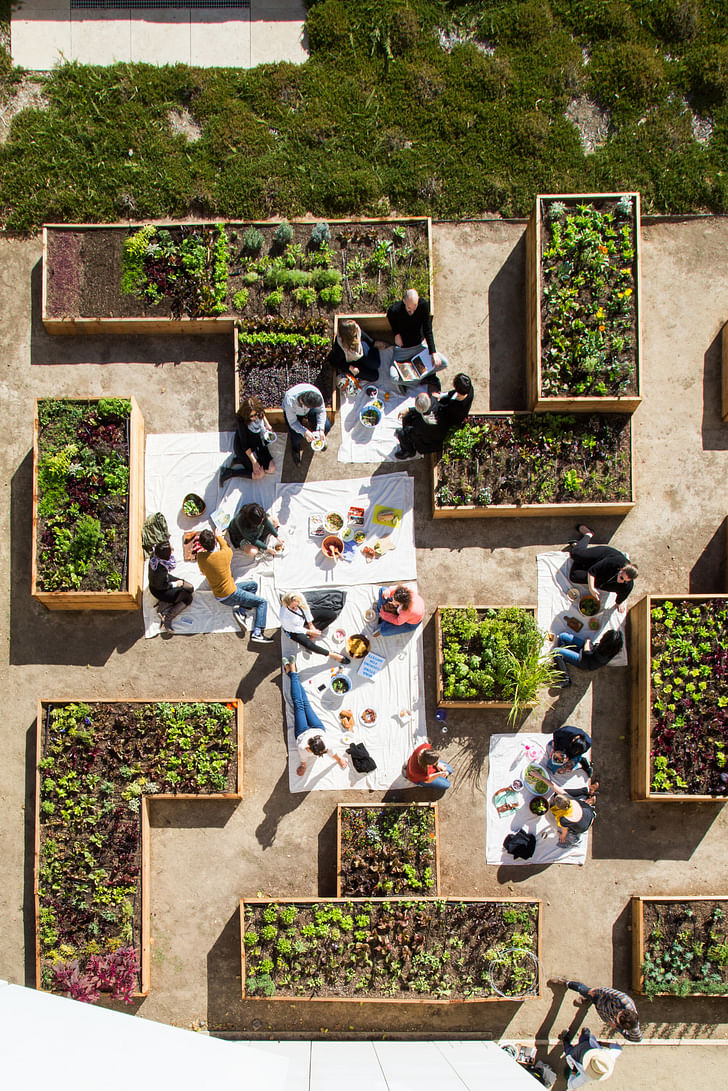
Why were you originally motivated to start your own practice?
There's a dearth of landscape architectural work in the United States (especially at the residential level) that operates at a conceptual / philosophical level. Sad but true. We wanted to create work that allowed us to explore ideas, and create work that was intellectually and formally different from what we were seeing, but also structure our office differently—so we started Terremoto.
What hurdles have you come across?
In a small office, everyone has to do everything, so maybe that's a hurdle, but secretly that's also what makes it fun? Cash flow is a hurdle with a small office. We're doing well and growing, but we still have to worry about money sometimes and that's a mild annoyance. But I'm not complaining—we've had tough times but we've also been incredibly blessed with great clients and collaborators and projects.
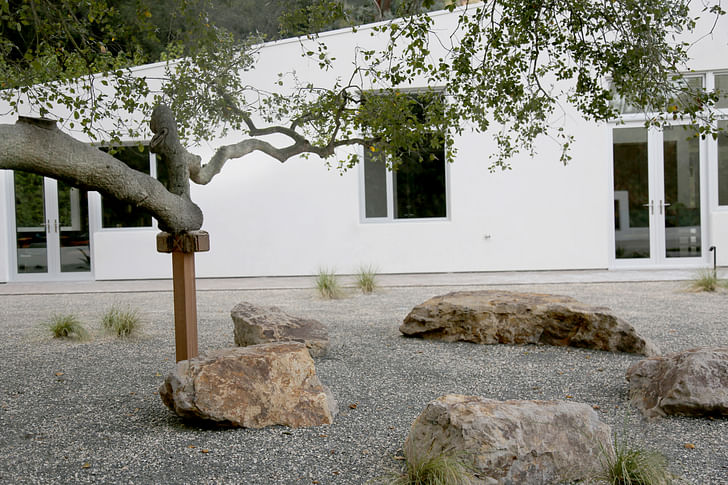
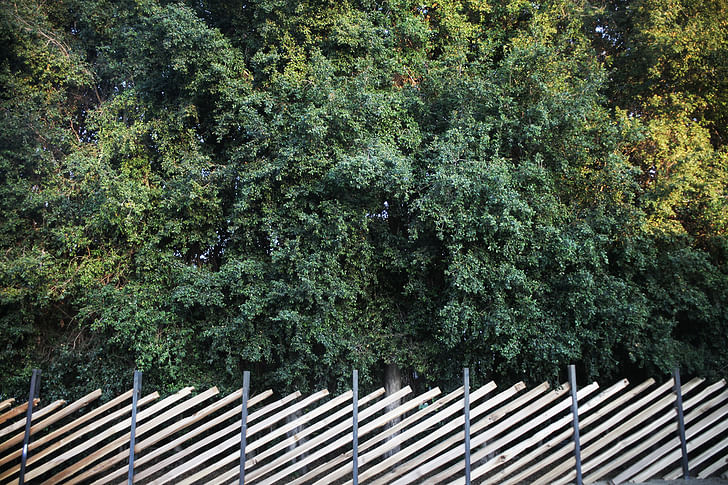
Is scaling up a goal or would you like to maintain the size of your practice?
Impossible to say. It's a family right now, and Alain and I love that dynamic, and I think that everyone in our office does too. We get a lot of job inquiries from people who are unhappy at their more conventionally corporate-style landscape architecture job, and I get it, I feel their pain.We can hover at the fringes of the profession and throw rocks at the mainstream Mainstream landscape architecture is fundamentally flawed in that it is largely emotive, creative types of individuals who are drawn to the profession, and many offices don't allow or support creativity or philosophy (or even let you outside!), which can be a total soul drainer. Right now we're at a really sweet spot where we're getting really interesting projects and sites, but our work isn't primarily developer-driven, so we have the luxury of taking risks, staying avant-garde and we can hover at the fringes of the profession and throw rocks at the mainstream. We like that and we deeply hope some sense of that stays with us forever. So no, we don't really want to grow beyond 10 people, because we'd rather Terremoto be a rad landscape punk band than run a conventional, financially profitable business. But who knows, that answer may change...people evolve, and Terremoto is a group of people, so we'll see.
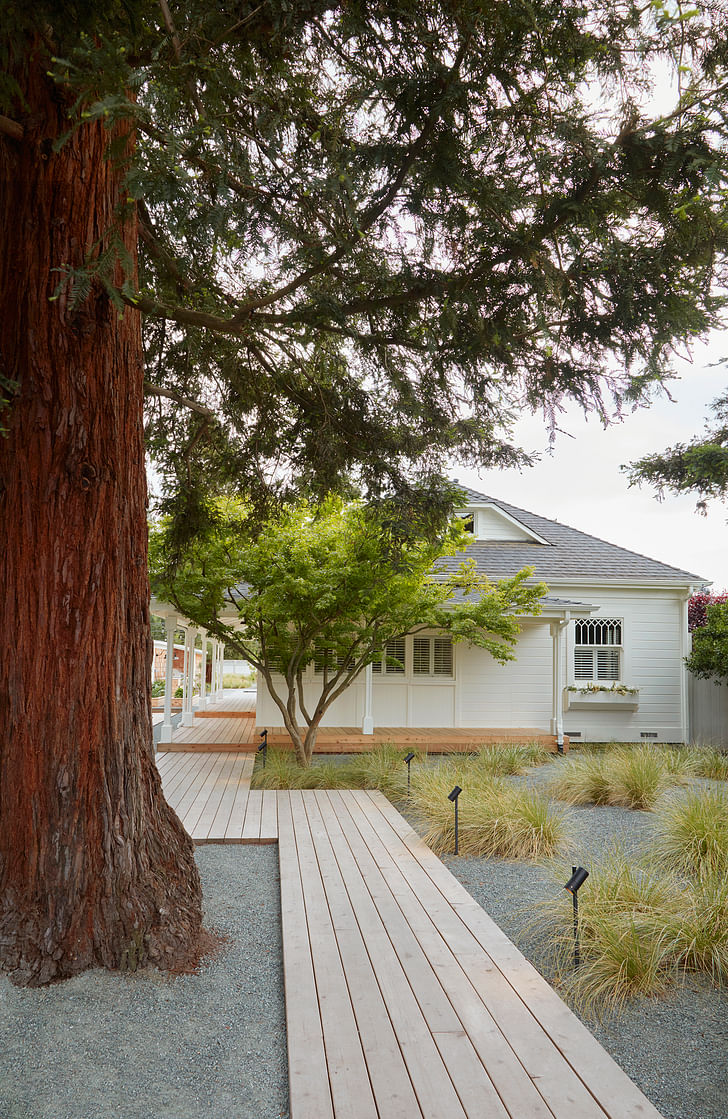
What are the benefits of having your own practice?
Working for yourself is a long con. A 60-70 hour work week becomes natural, and the lines between work and not working become blurred, but if you love what you do, you'll relish the grey-ing of these distinctions. Life becomes a practice—looking, talking, drawing, building, breathing, eating. And you can make up your own hours–I work very long hours, but I leave and I'm with my son and wife every day from 4:30-7:30 PM, which is something I wouldn't have the luxury of doing if I worked somewhere. And we try to build in that latitude with our team as well.
Life becomes a practice—looking, talking, drawing, building, breathing, eatingBut yes, you get to define the rules, which is radical fun. We thought the salary model was bullshit—employees end up being taken advantage of—and so we pay people competitive salaries, but we pay by the hour. Though we try to keep hours generally civilized for our team, sometimes we have to grind, but because of the hourly model we have, people end up making more money (overtime!) if they work late and long. And consequently we're very selective and sparing with when we call overtime in. It makes for a healthier model for our employees and requires we're thoughtful time managers as business owners.
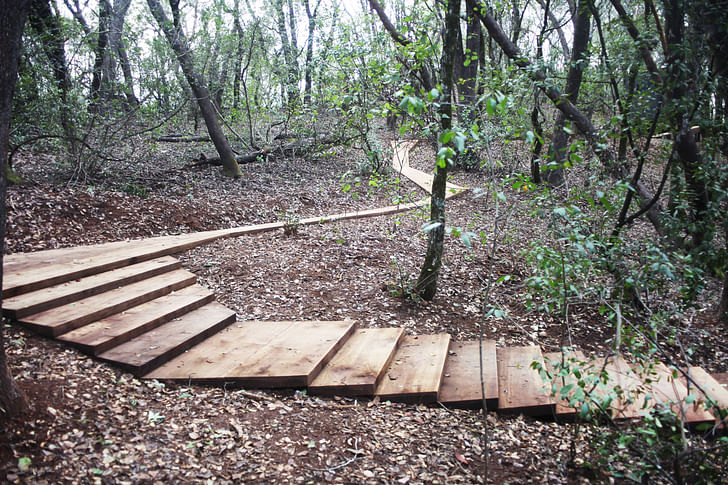
And staying small?
Staying small requires honesty and there's no space for ego—everyone must be DIY and willing to do everything—client management, conceptual thinking, construction documents, tree tagging, taking out the trash, sweeping the floor, all of it. Staying small requires honesty and there's no space for egoConsequently we now have a small team of incredibly well-rounded, versatile, amazing individuals. When you get large, people tend to specialize in one type of thing or work on just one project for many months, and that's just less attractive to us. I love the fact that I can have a heated discussion about horticultural semiotics with Diego, Jenny and Erik while I water the office plants.
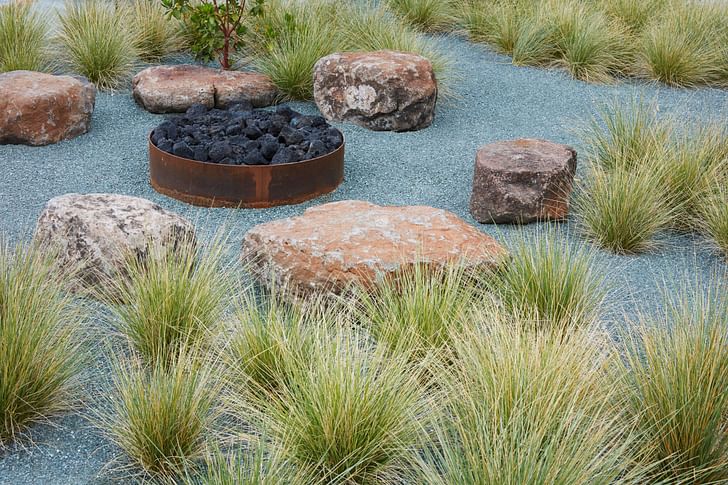
1 Comment
May Day was an auspicious time for the Terremoto article; it's inspiring and refreshing to learn about a small business that considers the lives of its workers to be an important part of the process . . true for all of us, but maybe especially so for those in the artistic realm. And the pictures were beautiful, too; after reading, I turned off my laptop and went for a walk. Thanks!
Block this user
Are you sure you want to block this user and hide all related comments throughout the site?
Archinect
This is your first comment on Archinect. Your comment will be visible once approved.